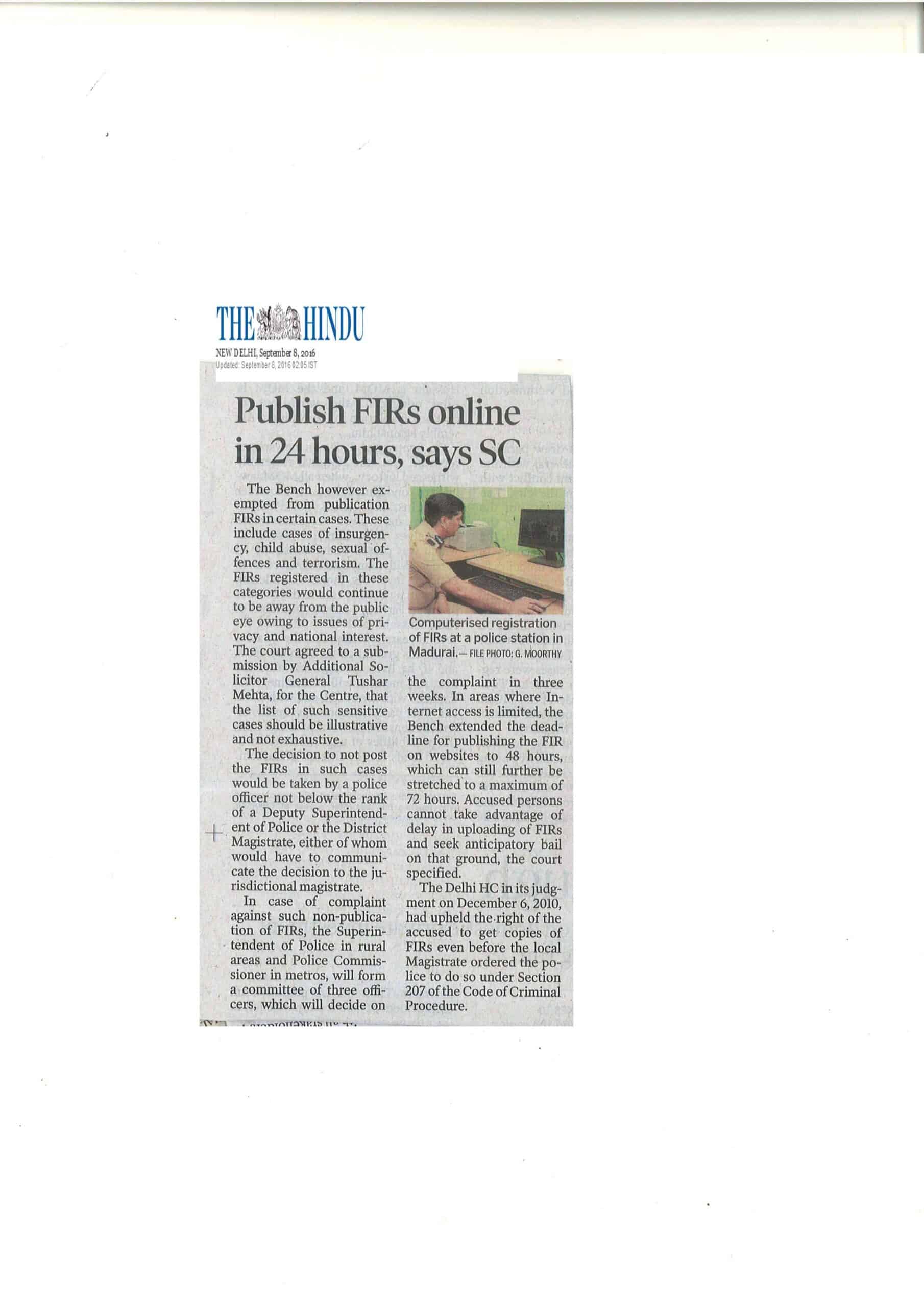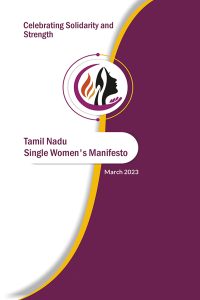
Upholding the right of an accused to information and putting a check on the authority of the police to deprive a person of his liberty, the Supreme Court on Wednesday ordered States and Union Territories to upload, on police or government websites, First Information Reports (FIRs) within 24 hours of their registration in police stations.
A Bench of Justices Dipak Misra and C. Nagappan directed the implementation of this step to usher in transparency in police work. It said an accused had every right to know what he was accused of. “Where liberty of a person is at stake and the criminal law is set in motion, the accused should have all the information,” the Bench observed.
It said access to the FIR would help the accused prepare his defence and “seek redressal of his grievances.”
The court order came on a writ petition by the Youth Bar Association of India earlier this year seeking such a direction to the Union government, States and UTs.
The Bench however exempted from publication FIRs in certain cases. These include cases of insurgency, child abuse, sexual offences and terrorism. The FIRs registered in these categories would continue to be away from the public eye owing to issues of privacy and national interest. The court agreed to a submission by Additional Solicitor General Tushar Mehta, for the Centre, that the list of such sensitive cases should be illustrative and not exhaustive.
The decision to not post the FIRs in such cases would be taken by a police officer not below the rank of a Deputy Superintendent of Police or the District Magistrate, either of whom would have to communicate the decision to the jurisdictional magistrate.
In case of complaint against such non-publication of FIRs, the Superintendent of Police in rural areas and Police Commissioner in metros, will form a committee of three officers, which will decide on the complaint in three weeks. In areas where Internet access is limited, the Bench extended the deadline for publishing the FIR on websites to 48 hours, which can still further be stretched to a maximum of 72 hours. Accused persons cannot take advantage of delay in uploading of FIRs and seek anticipatory bail on that ground, the court specified.
The Delhi HC in its judgment on December 6, 2010, had upheld the right of the accused to get copies of FIRs even before the local Magistrate ordered the police to do so under Section 207 of the Code of Criminal Procedure.




